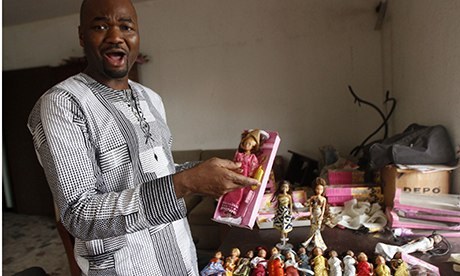leseanthomas:With a booming economy in Nigeria and more black children than anywhere else in the wor
leseanthomas:With a booming economy in Nigeria and more black children than anywhere else in the world, Taofick Okoya was dismayed when he could not find a black doll for his niece.The 43-year-old spotted a gap in the market and, with little competition from foreign firms such as Mattel Inc, the maker of Barbie, he set up his own business. He outsourced manufacturing of doll parts to low-cost China, assembled them onshore and added a twist – traditional Nigerian costumes.The dolls represent Nigeria’s three largest Ethnic Groups; Hausa, Igbo and Yoruba so far.Seven years on, Okoya sells between 6,000 and 9,000 of his Queens of Africa and Naija Princesses a month, and reckons he has 10-15% of a small but fast-growing market.“I like it,” says Ifunanya Odiah, five, struggling to contain her excitement as she inspects one of Okoya’s dolls in a Lagos shopping mall. “It’s black, like me.”Like Barbies, Okoya’s dolls are slim, despite the fact that much of Africa abhors the western ideal of stick-thin models. Okoya says his early templates were larger bodied, and the kids did not like them.But he hopes to change that. “For now, we have to hide behind the ‘normal’ doll. Once we’ve built the brand, we can make dolls with bigger bodies.”SOURCE: http://www.theguardian.com/global-development/2014/jan/15/barbie-nigeria-queen-africa-dolls-mattel-toymaker -- source link


